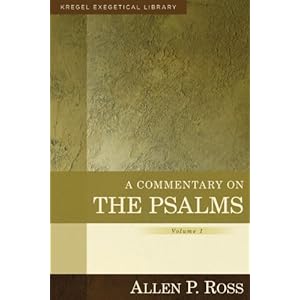One of the great things about Mark's Gospel is that he records Jesus as a man of action, as one who gets right to the work that He was there to do. John, Luke, and Matthew record both action and parables, but the pacing by all three of those is slower. Mark writes like he's putting together an action film, Matthew more of a contemplative movie, Luke wrote a miniseries with two parts (Luke and Acts), and John wrote a multi-part theological documentary.
Mark wrote the nuts-and-bolts of the life of Christ. It's for this reason that I have shifted my guidance to new believers or those trying to start a Bible-reading habit. Formerly, I recommended one start by reading the Gospel of John as their starting point. John's great, but I now recommend starting by reading Mark and then 1 John. Mark to get the first look through the life of Christ and 1 John to began to grasp the theology underneath it.
Mark 1 gives you the opening of the life and ministry of Jesus, and Mark 2 (link) gets you straightway into His ministry. He's in Capernaum on the north shore of the Sea of Galilee. Mark makes the reference in Mark 2:1 that it was heard the Jesus was "home" when He was there. We tend to think of Jesus as being completely homeless, and I think that during the bulk of His ministry He essentially was (Matthew 8:20), though I think it was by choice. He certainly had not invested His life into houses and earthly wealth that He did not need.
The issue at hand, though, is not where He lives but what He teaches while He's there and elsewhere. Let's take that and see what we gather:
First: He's teaching in a house (possibly His own) and we see four men bringing a paralyzed man to Him, cutting a hole in the roof, and lowering the man down to Jesus. Jesus promptly seizes the moment, tells the man his sins are forgiven, and sends him out of the room. Before the crowd clears out of the way, though, Jesus acknowledges what the people in the room are thinking: No one has the right to forgive sins not committed against them.
No one.
Yet Jesus takes the prevailing idea of the time, that sin and affliction were the direct result of sin, and turns that on its head right in front of everyone. Now, it's possible that the people knew why this particular person was paralyzed—maybe he had actually brought it on himself, but we do not know now. Jesus asks a very direct question: Which is easier? Forgiveness or healing? This question hits the point: forgiveness is hard to do but easy to say—healing is easy to say but hard to do, and the crowd would have expected no healing without forgiveness. So Jesus pronounces both.
It's a serious opening salvo in His preaching. He is putting forth that He will not be just another rabbi along the way. Truly, much of what He does will follow in the pattern of the rabbis before Him, but this is different. He does not stop with this one pronouncement, though.
He goes on to accept a tax collector as a disciple, eat with sinners and tax collectors (Jesus came to save both parties: sinner Republicans and tax collector Democrats), corrects the religious misunderstanding of who He is, upends unnecessary legalism about holy days, and speaks forward of His death.
All of this is summarized when He points out that He's not here to quilt. That is, He is not here to put a new patch on an old cloth or to put new wine into old wineskins, but rather He is here to show what the garment looks like brand new. To show how things ought to work from the beginning. No one before Him or after Him can make that claim: He is the One with that authority.
Our old lives, bound up in sin and selfishness, driven by rebellion against God, all must pass away and be remade by Him in us. We cannot squeeze Him into our religion but must be transformed by the Word of God, shown in His life and His teachings.
Today's Nerd Note: There is much debate today regarding whether or not Jesus held material riches in His lifetime. There are actually a few books and preachers that fully hold that He not only had enough, but actually was quite wealthy in His earthly life. One point of disagreement with those who hold this view is the above mentioned passage that notes Jesus telling one of the disciples that He "had no place to lay his head."
That is, of course, not exactly true of His whole life as we see in this passage where His being "home" is referenced. However, there's a pretty big gap between recognizing that Jesus had a home before He started His obvious ministry and that He was always rich and healthy and happy.
This does not bear out throughout His ministry. There is little Scripture to support that He lived in abject poverty, but He also lived at a level lower than He deserved. Given that all of Heaven was His, all of Creation was His, and He instead took on the form of servant, then even if you found ancient chariot titles made out in His name, would you not agree that He was poor on this earth? (Philippians 2:5-11)
In that, we should follow His example and not seek more than we truly need and can truly use for His glory. After all, all that we have is His if we are His.

